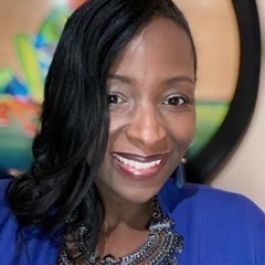The work to create a level playing field for professionals of all backgrounds and ethnicities is never done. With that in mind, where’s a good place to start? According to Justworks’ Director of DEI Michael Baptiste, the answer lies in developing and sustaining talent rather than consistently looking toward a revolving door.
“Too often, companies put too much emphasis on hiring for diversity and not enough on investing in the diverse talent they already have,” Baptiste said.
At the enterprise software platform, employee resource group leaders are compensated for the work they do supporting and educating their peers. He and his NYC-based peers are also taking the time to listen to employee experiences, using data to overhaul long-standing learning and development processes, and incorporating DEI performance trackers into company products.
“Tech companies set goals for everything,” Netta Jenkins, VP of global inclusion at Unqork, said. “DEI shouldn’t be any different.”
After all, creating a space for vulnerability is a marathon, not a sprint.

There’s a difference between wanting something to be true and using objective, action-based processes to make it so. Talent Lead Maura Pagano explains the distinction in terms of many corporate DEI efforts. At TrialSpark, Pagano said that by providing consultation and support, the healthtech company’s DEI working group makes diversity more than a pipe dream.
What’s the number one thing every tech company should do right now to improve diversity (of all kinds) in their organization?
Two words: Get specific. Today, it is common for employers to declare their genuine interest in building a more diverse team. That’s no surprise; research conducted by McKinsey in 2015 found that companies with greater racial and ethnic diversity perform better financially. But companies can’t just state their intention to commit to diversity and hope for the best.
At TrialSpark, we’ve found that articulating clear goals and metrics for our DEI initiatives, particularly around hiring, is critical. Without a clear roadmap and milestones, it can be difficult to stay on track and actually reach our desired outcome of a more diverse team. Our roadmap has specific answers to these important questions: What groups are underrepresented at our company, and why? What does our hiring funnel need to look like to bridge those gaps? How are we holding ourselves accountable?
Not until companies answer these questions can they make meaningful progress on improving diversity in their organizations.
Companies can’t just state their intention to commit to diversity and hope for the best.’’
What’s the number one thing every tech company should do right now to improve inclusivity and equity in their organization?
At TrialSpark, we have assembled a DEI working group. This is a collaborative, cross-functional team with representation from across our organization. Not only does it serve as a forum for community building; it also brings together a diverse set of employees who ensure we’re driving our DEI initiatives forward.
This group has advised our talent team on their hiring roadmap, helped set up a formalized employee resource group program and provides a safe space for discussion among employees.
Of all the DEI initiatives you've led, which has been the most impactful, and why?
I recently led a workshop at TrialSpark called “Advocating for Yourself.” While the onus is on employers to ensure their organizations adopt inclusive hiring practices and create supportive workplace cultures, advocating for one’s career is a key skill for advancement.
This skill might not come naturally to everyone, especially for those who are underrepresented or face systemic disadvantages in their industries. In the workshop, I discussed important practices like keeping a running list of your achievements and leveraging your relationship with your manager. We also explored tactics for building your brand at work and how to prepare for a big conversation like asking for a raise or promotion.
At Unqork, Netta Jenkins thinks about the success and growth of DEI initiatives in the same way she thinks about aspects of the company’s software product: as trackable using data. But the VP of global inclusion is doing more than thinking about it. Jenkins is adding a feature to the enterprise application development tech stack that allows her and her peers to track their performance when it comes to inclusivity.
What’s the number one thing every tech company should do right now to improve diversity (of all kinds) in their organization?
All companies should create a plan to measure DEI as a KPI with a focus on recruiting and retention, development and growth, and engagement and branding. Tech companies set goals for everything. DEI shouldn’t be any different.
At Unqork, I’m currently working with our tech team to build out a platform that will allow all employees to plug in their DEI KPI goals and track their performance. I hope to use and scale this product internally before introducing it to our client organizations as a new feature.
All companies should create a plan to measure DEI as a KPI.’’
Of all the DEI initiatives you’ve led, which has been the most impactful, and why?
Offering people an opportunity to learn how to build software for free. Many people don’t have the time or money to head back to school or to enroll in a bootcamp. I’m excited about rolling out an initiative that will give folks the opportunity to familiarize themselves with Unqork’s software platform.
A true, impactful DEI initiative doesn’t begin with the HR team. It starts with all employees. At mobile engagement platform Braze, Kristin Tarczynski said that dedicated roundtables have allowed team members to share vulnerable feedback with each other and leadership. But listening alone isn’t enough. She recommends that companies track transparent goals to sustain momentum.
What's the number one thing every tech company should do right now to improve diversity (of all kinds) in their organization?
First and foremost, be transparent. Talk about the uncomfortable things without sugarcoating them, including the areas where your organization may be falling short. If your racial and ethnic diversity statistics aren't something that the broader company already has access to, share those numbers openly and continuously.
Speak with employees from all backgrounds, and if they’re willing to share, listen to their perspectives and suggestions. Create space for vulnerability and encourage it! Then create an action plan and hold yourselves accountable by measuring progress regularly.
What’s the number one thing every tech company should do right now to improve inclusivity and equity in their organization?
Take a look at your company’s engagement survey trends, analyze compensation data on your teams, speak to those who are willing and then share your findings broadly with your organization. By publishing the areas you’re committed to improving, you’re holding your entire organization accountable. A true, impactful DEI initiative doesn’t begin with the HR team. It’s the responsibility of all employees, from executive to entry level.
A true, impactful DEI initiative doesn’t begin with the HR team.’’
Of all the DEI initiatives you've led, which has been the most impactful, and why?
Last summer, one of our internal committees hosted an inclusion roundtable that I had the great fortune to moderate. It was an internal-only event that was low lift but had a huge impact on our community of teammates.
The honesty and empathy that colleagues showed as they discussed inclusion in the workplace and how to improve at Braze and elsewhere was transformative for me. It has been the outline for many internal discussions since. As we enter a new phase of our DEI mission at Braze, holding fast to our core values and allowing the space for vulnerable sharing and listening will continue to be the anchor of our community.
If your company has somewhat of a revolving door, especially when it comes to BIPOC employees, the problem is not them –– it’s you. At business software platform Justworks, Director of DEI Michael Baptiste emphasizes that a focus on revamping hiring practices doesn’t mean ignoring current team members’ wants and needs.
What’s the number one thing every tech company should do right now to improve diversity (of all kinds) in their organization?
Focus on retention and invest in your existing employees. If you don’t have systems and processes in place to support diverse talent, employees won’t feel supported and won’t want to stay with the company.
Too often, companies put too much emphasis on hiring for diversity and not enough on investing in the diverse talent they already have. Look at what processes and programs you have in place to develop your BIPOC employees and adjust accordingly to create sustainability.
What’s the number one thing every tech company should do right now to improve inclusivity and equity in their organization?
Identify what systemic barriers are currently or have been in place to limit inclusivity and equity. While diversity and inclusion is important, without equity we cannot begin to truly understand the nature of advantages and disadvantages in the workplace. Equity focuses on the fair treatment, access, opportunity and advancement for all people.
The principle of equity acknowledges that there are historically underserved and underrepresented populations. Companies have to commit to addressing and tearing down barriers to create a safe, fair and equitable workplace for all.
The principle of equity acknowledges that there are historically underserved and underrepresented populations.’’
Of all the DEI initiatives you’ve led, which has been the most impactful, and why?
Our commitment to compensating our employee resource group leaders. Without our ERG leads, there would be no ERGs –– it’s as simple as that. But without them, Justworks also wouldn’t be the same company it is today, or tomorrow for that matter. These employees have stepped up to take on added responsibilities and duties that directly impact our company’s success. They support our ability to recruit and retain talented people and help all our employees to feel connected, valued, respected and appreciated.
It is important that as a business we support our ERG efforts and initiatives around DEI. But it is also important that we support our ERG leads as individuals.
In the aftermath of George Floyd’s murder, Eyana Carballo coordinated panel discussions highlighting the lived experiences of senior Black BCG Digital Ventures advisors. Carballo is manager of global business development and technology investments, but at the corporate investment firm, her work extends beyond that title. As the leader of the company’s Global Black Employee Affinity group, she has co-authored a firmwide commitment to hiring, promoting and retaining Black employees.
What’s the number one thing every tech company should do right now to improve diversity (of all kinds) in their organization?
Align external DEI statements and commitments with internal action. External statements mean nothing if you aren’t committed to improving diversity, equity and inclusion within your organization.
People will call you out if you aren’t walking the walk. Align your external commitments with internal DEI metrics.
What’s the number one thing every tech company should do right now to improve inclusivity and equity in their organization?
Be transparent about where you are on the DEI journey. Have difficult conversations with your leadership teams and staff. Tell the truth. Share the data. Create a plan that is integrated into your overall business strategy. Define success. Hold your organization responsible for delivering results. Track results.
Be transparent about where you are on the DEI journey.’’
Of all the DEI initiatives you've led, which has been the most impactful, and why?
Advocating for racial equity at BCG, promoting data transparency and co-authoring a firmwide commitment to hiring, promoting and retaining Black employees in partnership with our Black Employee Networking group.
The most impactful DEI initiative I’ve led is supporting, navigating and educating BCGDV through the aftermath of the murder of George Floyd. I provoked discussions of Black Lives Matter at work and shined a light on the injustice and inequality Black people around the world face on a daily basis. Fortunately, I was able to leverage data sourced from BCG case studies and articles to quantify the ROI of this work, in addition to coordinating panel discussions highlighting the lived experiences of senior Black BCG advisors.
Not every business leader needs to be on the exact same page in their DEI journey. But in order to make progress, Tarsha McCormick recommends that they are all transparent with their headway. The head of diversity, inclusion and social change at ThoughtWorks said that DEI engagement surveys allow her team to identify underlying themes the company can latch onto to measure year-over-year success.
What’s the number one thing every tech company should do right now to improve diversity (of all kinds) in their organization?
Complete a holistic organizational assessment of policies and practices to identify areas of the business that may require additional attention in order for you to improve your diversity. The assessment should focus on all areas that impact how you recruit, retain, grow and support candidates and employees. Consider recruiting practices, policies, benefits, compensation, performance evaluations and learning and development.
The next step is to create a strategic DEI plan that identifies focus areas from the assessment. The strategic plan should include the actions you will take to address, mitigate, create or enhance your practices to improve your workplace diversity. A few examples might include creating a gender transition policy, designating gender neutral restrooms, creating a mother’s room for breastfeeding moms and facilitating discussions about unconscious bias, gender, race and intersectionality. Good intentions do not always yield results. It is important to have a plan, determine your measures of success, evaluate frequently and pivot as needed.
Good intentions do not always yield results.’’
What’s the number one thing every tech company should do right now to improve inclusivity and equity in their organization?
Make diversity, inclusion and equity a priority! Educate business leaders on DEI and be transparent about where you are in your DEI journey. Creating a diverse, equitable and inclusive workplace where employees feel a sense of belonging starts with the company leaders. While each person in an organization contributes to fostering an inclusive workplace, ultimately it is up to the leaders to lay the foundation, educate themselves, set the example, be accountable, have the difficult conversations and embed and align DEI with the overall strategic goals of the business.
A recent McKinsey survey showed that 50 percent of candidates who identified as LGBTQ+, 45 percent who identified as a racial or ethnic minority, and 39 percent overall chose not to pursue a job because of a perceived lack of inclusion. Given these findings, and factoring in recent civil unrest, it is wise to make DEI a priority.
Of all the DEI initiatives you’ve led, which has been the most impactful, and why?
Our DEI engagement surveys. The surveys allow us to identify underlying themes from the employee perspective in communication, voice, inclusion and belonging, growth and development, and diversity and resources. Our inaugural survey helped establish a baseline for our future surveys and allowed us to track progress and measure success year over year.
The surveys have been an additional avenue for us to engage our employees and learn what matters most to them. In fact, much of the work we do in the DEI space is the result of feedback and data from the surveys. Overall, the feedback and data helps us continue to make ThoughtWorks more diverse, equitable and inclusive.
As COO of Clyde, Jereme Holiman encourages his employees to engage in challenging conversations about diversity, equity and inclusion. At the product protection company, team members have been participating in monthly, facilitated discussions on issues surrounding what it means to be an ally and how to combat unconscious biases.
What’s the number one thing every tech company should do right now to improve diversity (of all kinds) in their organization?
All companies need to be reflective and honest with themselves right now. They should hold themselves accountable and review patterns in their hiring practices that may have led to the homogenization of company makeup. Once those hiring practices have been identified, it’s on the organization to work to make its hiring processes more inclusive.
All companies need to be reflective and honest with themselves right now.’’
What’s the number one thing every tech company should do right now to improve inclusivity and equity in their organization?
Welcome and encourage your employees to engage in challenging conversations about diversity, equity and inclusion. If organizations avoid these conversations, they miss out on valuable opportunities to improve people’s understanding on issues of race. By promoting these types of conversations, leaders foster a culture where all voices and viewpoints can be heard, respected and valued –– not just on these specific topics.
Of all the DEI initiatives you’ve led, which has been the most impactful, and why?
At Clyde, we’ve begun companywide monthly, facilitated discussions on issues of diversity, equity and inclusion. We’ve covered topics such as what it means to be an ally and combating unconscious biases.
Engagement in these conversations across the company has been strong, and the team has reported that they’ve felt their understanding of these types of topics has improved. These conversations have been so successful because the team has consistently shown up with an open mind and a willingness to listen and learn.


















